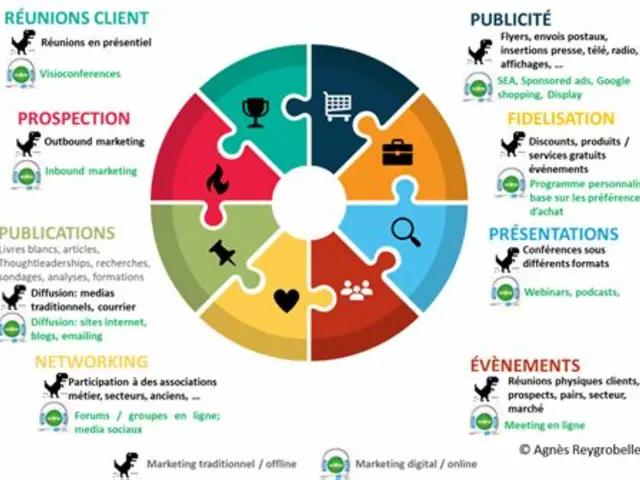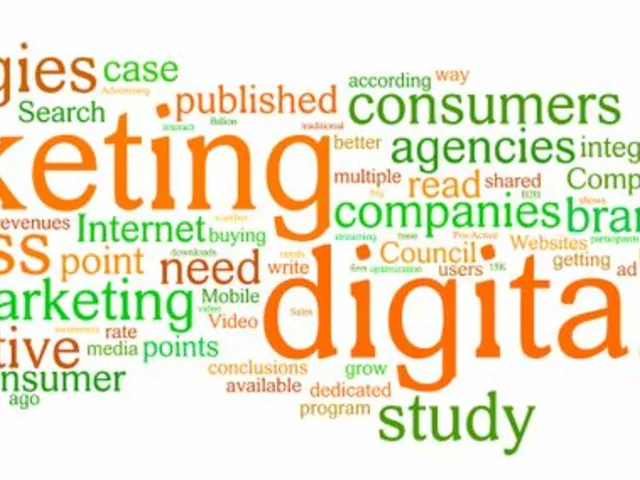
Understanding the Basics of Digital Marketing
Before we go any further, it's important to understand what digital marketing is, and how it can benefit your business. Digital marketing involves using digital channels, such as social media, search engines, email, and websites, to connect with current and potential customers. It's a way to promote your products and services, build a strong brand image, and achieve your business goals.
With the rise of the internet and digital technologies, digital marketing has become a crucial part of business strategy. It's no longer enough to just have a physical store; you need to have an online presence as well. And that's where digital marketing comes in. It helps you reach a wider audience, engage with your customers, and stay competitive in today's digital age.
Aligning Digital Marketing with Business Objectives
The first step in integrating digital marketing with business is to align your digital marketing strategy with your business objectives. You need to have a clear understanding of what you want to achieve with your digital marketing efforts. Whether it's increasing brand awareness, generating leads, boosting sales, or improving customer loyalty, your digital marketing strategy should be designed to help you reach these goals.
For example, if your business objective is to increase sales, your digital marketing strategy might include tactics like search engine optimization, pay-per-click advertising, and email marketing. These tactics can help you attract potential customers, convert them into leads, and ultimately drive more sales.
Creating a Digital Marketing Plan
Once you've aligned your digital marketing strategy with your business objectives, the next step is to create a digital marketing plan. A digital marketing plan is a detailed roadmap that outlines your digital marketing goals, the strategies and tactics you will use to achieve these goals, and the metrics you will use to measure success.
A good digital marketing plan should be comprehensive, yet flexible. It should cover all aspects of digital marketing, from search engine optimization and content marketing to social media marketing and email marketing. But it should also be adaptable, so you can adjust your strategies and tactics as needed based on the results of your efforts.
Implementing Your Digital Marketing Strategies
After creating a digital marketing plan, the next step is to implement your digital marketing strategies. This involves using various digital marketing tools and techniques to execute your plans. You might need to create content for your blog, manage your social media accounts, run email marketing campaigns, and so on.
Implementing your digital marketing strategies can be a complex task, but it's essential for achieving your digital marketing goals. So, it's important to invest time and resources into this step. You might also need to hire a digital marketing agency or a digital marketing expert to help you with this task.
Monitoring and Analyzing Your Digital Marketing Efforts
The next step in integrating digital marketing with business is to monitor and analyze your digital marketing efforts. Monitoring involves tracking the performance of your digital marketing campaigns, while analyzing involves interpreting the data to understand how well your campaigns are performing and where you can make improvements.
There are various digital marketing analytics tools that you can use for this purpose, such as Google Analytics, Facebook Insights, and Twitter Analytics. These tools can provide you with valuable insights into your audience, your content, your social media performance, and more. They can help you make data-driven decisions and improve your digital marketing results.
Improving and Optimizing Your Digital Marketing Efforts
Based on the insights from your monitoring and analysis, the next step is to improve and optimize your digital marketing efforts. This might involve tweaking your strategies and tactics, experimenting with new ones, or even overhauling your entire digital marketing plan.
Improving and optimizing your digital marketing efforts is a continuous process. It's not something that you do once and then forget about. It's something that you need to do regularly to stay ahead of the competition and achieve your business objectives.
Integrating Digital Marketing with Other Business Functions
The final step in integrating digital marketing with business is to integrate it with other business functions. Digital marketing shouldn't exist in a vacuum; it should be integrated with your overall business strategy and with other business functions, such as sales, customer service, and product development.
For example, your sales team can use the leads generated by your digital marketing campaigns to close more deals. Your customer service team can use social media to provide support to your customers. And your product development team can use the feedback gathered from your digital marketing efforts to improve your products and services. By integrating digital marketing with other business functions, you can create a more cohesive and effective business strategy.







Write a comment